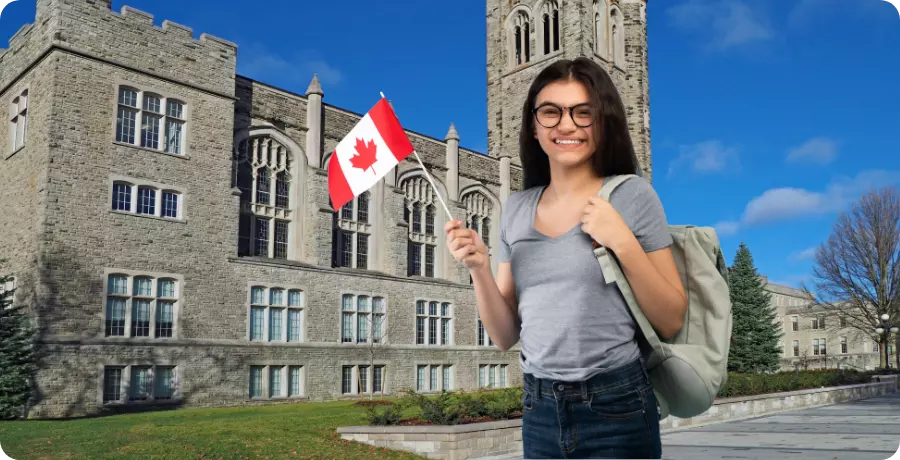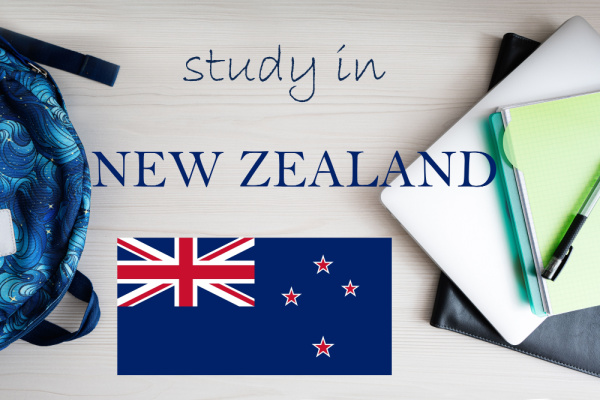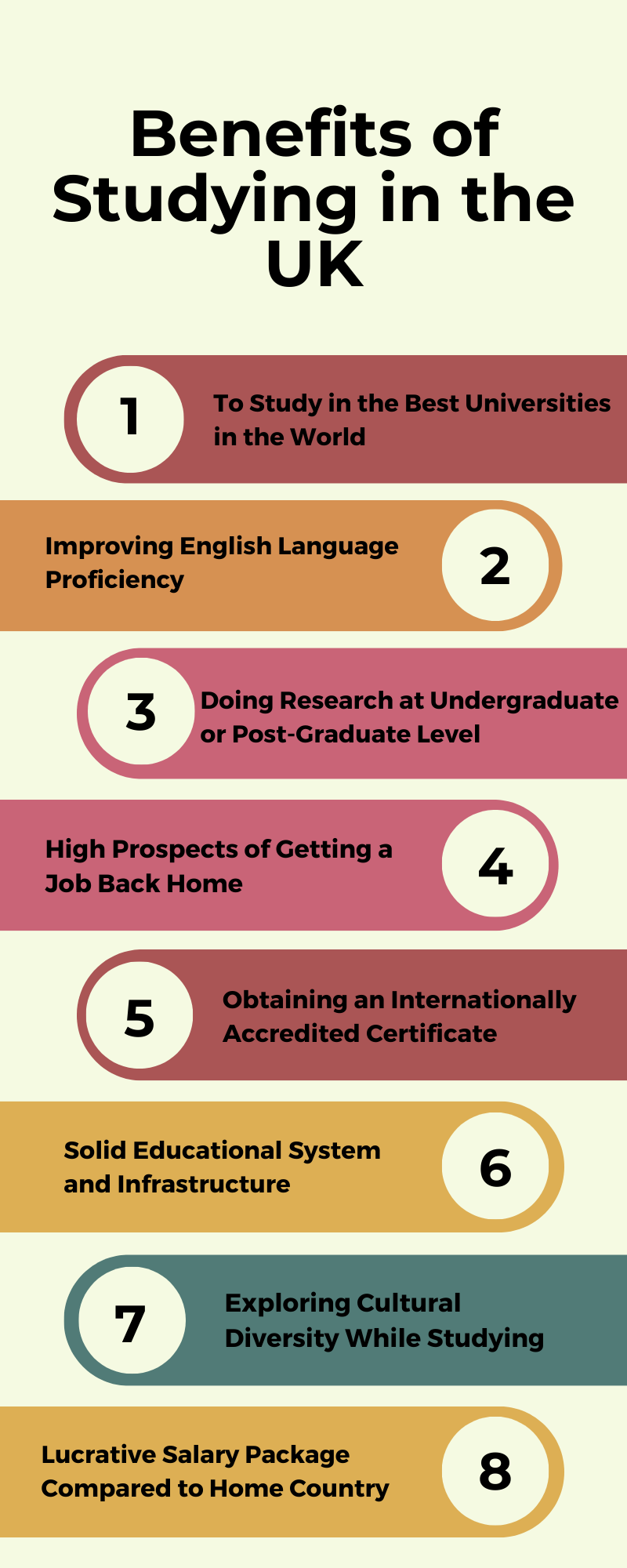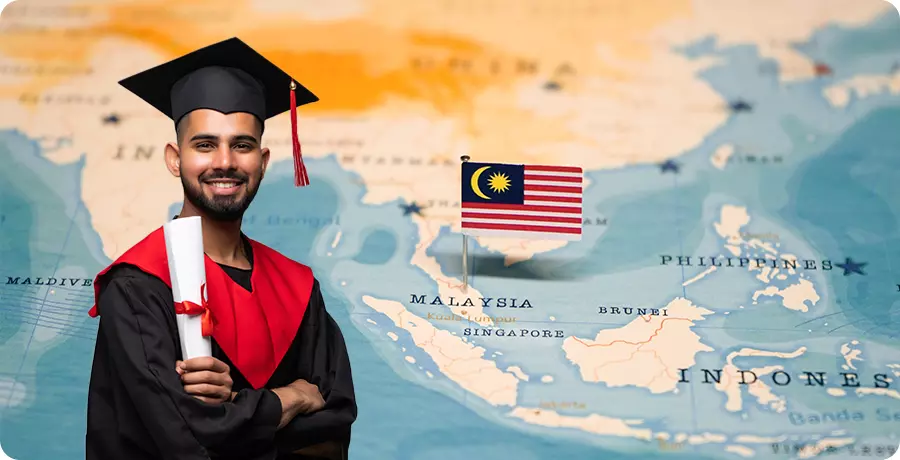Studying abroad is a life-changing experience that offers unique opportunities to learn, grow, and explore new cultures. One country that has become increasingly popular among international students is Denmark.
Denmark's exceptional approach to equality and social welfare is rightfully celebrated. The government ensures that income distribution is fair and just, fostering a high quality of life for all citizens.
The country's culture is epitomized by the iconic term 'Hyggelig,' which embodies warmth and comfort, genuinely reflecting the ambiance of Danish homes, food, and the overall environment. Denmark is an excellent choice for students seeking a high-quality education, a lively student community, and a reputation as one of the world's happiest nations.
Get expert guidance from Basmati Abroad Consultants Private Limited
However, there are important factors to consider before embarking on a study-abroad journey to Denmark. This comprehensive guide covers everything you need to know, including visa regulations, accommodation choices, language factors, and more.
Overview of the Education System in Denmark
Denmark has one of the most developed higher education structures in the world. It fosters lifelong learning to keep students equipped with current industry trends and stay competitive. It offers the most affordable educational routes, giving economically deprived students access to education.
Taxes fund the majority of education and is free for the student. Danes place a high value on education; even degree holders enroll in additional courses to advance their careers or pursue hobbies. An outstanding feature of Denmark's education system is its emphasis on interdisciplinary learning.
It fosters an environment where students can delve into various subjects and combine knowledge from distinct domains/specializations. This approach equips students with transferable abilities such as teamwork, communication, and problem-solving, preparing them for a job market that is rapidly evolving.
![Studying Abroad in Denmark: What You Need to Know?]()
- World-class universities – Despite having only eight universities, Danish institutes have a strong presence in the international league tables.
- International outlook – Denmark is a welcoming destination for foreigners, with over 30,000 international students currently studying there.
- Free Danish lessons – The Danish government provides free language classes to international students and workers to help newcomers settle in.
Studying in Denmark as an international student provides a one-of-a-kind cultural experience. Denmark is a hospitable and inclusive nation with an exceptional standard of living and a robust welfare system. Several universities in Denmark offer programs taught in English, making it accessible to non-Danish-speaking international students.
Opportunities for International Students to Masters
In Denmark, the government places high importance on equipping graduates with the necessary skills for the job market. Therefore, higher education institutions are expected to prioritize employability for their students.
It boasts a rich legacy of offering its residents and global scholars top-notch education standards. Its unique academic system and exceptional standard of living make it a sought-after location for those pursuing a bachelor's and master's degree.
Denmark offers many UG, PG, and Ph.D. degree programs taught in English. These programs are tailored to meet the needs of students worldwide, ensuring they receive a top-notch education. Denmark is also renowned for its emphasis on research and innovation, providing international students with unparalleled opportunities to work on pioneering research projects.
This experience can be precious for students interested in pursuing careers in research, academia, or other fields that require advanced research skills.
Living Culture for Indian Students in Denmark
Denmark is a country that prides itself on its cultural diversity and welcoming atmosphere for international students. Indian students studying in Denmark can expect to encounter a unique fusion of traditional Scandinavian culture and contemporary global influences.
Denmark boasts a rich culinary tradition that combines local ingredients with international flavors, featuring delicacies such as smørrebrød (open-faced sandwiches), herring, and traditional pastries like wienerbrød (Danish pastry). Additionally, Indian students will be pleased to know that there are many Indian restaurants available in Danish cities, making it a popular choice for those craving a taste of home.
Indian students can expect a friendly, inclusive culture in Denmark that balances tradition and modernity. Denmark has much to offer international students, from cozy "hygge" gatherings to sustainable practices and diverse culinary experiences.
Famous Universities and Programs for International Students
The country has some of the world's best universities, offering various courses and programs that cater to students' diverse interests and career aspirations.
University of Copenhagen
The University of Copenhagen, which routinely ranks among the top 100 institutions in the world by QS rankings, is one of the most esteemed universities in Denmark. Business, economics, humanities, law, social sciences, natural sciences, and health sciences are just a few of the programs the institution provides. Depending on the program, overseas students must pay course fees ranging from DKK 95,000 to DKK 150,000 yearly.
Aarhus University
Another highly esteemed university in Denmark is Aarhus University, ranked 161 in QS World Rankings. Aarhus University is known for its research-oriented approach and offers programs in various fields, such as economics, engineering, business, social sciences, humanities, and natural sciences. The tuition fees for international students range from DKK 50,000 to DKK 120,000 per year, depending on the program.
Copenhagen Business School
The exceptional business and management programs offered by Copenhagen Business School in Denmark have gained global acclaim. Their institute provides a wide range of courses, including undergraduate, graduate, and doctoral studies. International scholars must expect to incur course fees ranging from DKK 120,000 to DKK 175,000 per annum.
The Technical University of Denmark
Ranked 104 by QS World University Rankings, TUD offers the best opportunities for engineering students and related fields. The university provides aerospace, civil, computer science, and electrical engineering programs. The course fees for international students range from DKK 50,000 to DKK 120,000 per year, depending on the agenda.
A Secondary Home: Accommodation Options for Students
That being said, at the end of the day, any human requires shelter or a home, right? And does Denmark offer accommodation options for students? When it comes to accommodation, international students in Denmark have several options to choose from, including apartments, hostels, and student dormitories.
Apartments
For international students in Denmark, apartments are the go-to option as they provide privacy and independence. In Copenhagen, the average monthly rent for a one-bedroom apartment varies from DKK 5,000 to DKK 12,000 (approximately USD 800 to USD 1,900). Keep in mind that the cost of utilities like electricity, water, and internet connectivity is usually not included in the rent and could add DKK 1,000 to DKK 2,000 per month.
Hostels
In times of paucity of hostels and private apartments, hostels are the last options for cost-effective living. They provide rates ranging from DKK 200 to DKK 500 (equivalent to approximately USD 30 to USD 80) per night. These lodgings typically offer shared amenities, including kitchens, laundry rooms, and common spaces, making them a practical option for students on a limited budget.
Student Dormitories
A readily available option for international students on most university campuses. A single room in a dormitory usually costs between DKK 2,000 and DKK 4,000 per month (roughly USD 320 to USD 640) and may include utilities like electricity, water, and Wi-Fi.
Work and Study: Part-time Opportunities and Internships
"Did you know that international students studying in Denmark can work part-time while pursuing their degree?"
Yes, international students are permitted to concomitantly study and work in Denmark. However, certain requirements must be met, such as holding a valid residence permit and enrolling in a full-time program at a higher education institution.
Part-time work opportunities include retail, food service, hospitality, and customer service jobs. The hourly wage for part-time work in Denmark can range from DKK 110 to DKK 150 (roughly USD 17 to USD 24), depending on the industry and job type. Typically, students can earn an average of DKK 2,500 to DKK 4,000 (which is roughly USD 400 to USD 640) per month while working part-time.
International students are introduced to two types of operating privileges in Denmark, such as part-time and post-degree job opportunities. Ensure you know them before securing a short career in the host country.
![Studying Abroad in Denmark: What You Need to Know?]()
Summer Internships/ On-Campus Jobs
One should always appreciate the job hunting process, as the most outstanding opportunities often come unexpectedly. For international students searching for part-time or summer jobs, excellent academic performance can substantially enhance their likelihood of success. It's crucial to frequently review job postings and consider contacting the student union or checking the campus bulletin board for potential employment opportunities.
Post-Degree Jobs
Upon completion of their degree, international students in Denmark may extend their resident visa for six months to work there. They can also explore various avenues to secure employment, including registering on job search websites and uploading their resume. If invited for an interview, it is vital to conduct oneself respectfully, exhibit competence, dress appropriately, and arrive punctually.
Conclusion
In the long run, pursuing a master's degree in Denmark is an absolute game-changer for international students. The education system in Denmark is unparalleled, offering many research opportunities and a vibrant cultural landscape. Additionally, students can work during and after their studies, making it an irresistible option for those striving to reach their academic and career objectives.
We are confident that our blog can help you make informed decisions en route to Denmark. In need of additional assistance, never shy away from seeking expert intervention. That being said, start a life-changing educational experience in one of the best study-abroad locations in the world by reaching out to Sulekha.com to speak with a professional study in Denmark education consultant now!
“Alt Det Bedste for dit studie og ophold i Danmark. Vi glæder os til at have dig!” Wonder what it means? See it yourself.







.jpg)






